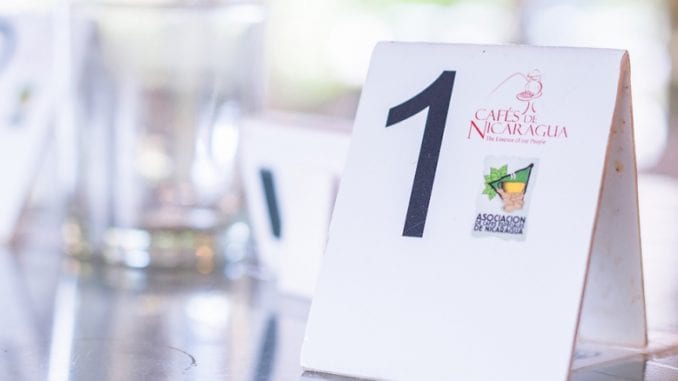
Cup of Excellence held its 2018 Nicaragua competition earlier this month, with hybrid varieties nabbing four of the top 11 spots.
BY CHRIS RYAN
BARISTA MAGAZINE ONLINE
Photos courtesy of Cup of Excellence / Ariel Flores
Cuppers from around the globe descended on Nicaragua earlier this month for Cup of Excellence (COE), the origin competition recognizing farmer excellence and rewarding fantastic coffees. The competition—which is run by the nonprofit Alliance for Coffee Excellence (ACE)—awarded 35 coffees, with the lowest score at 86.7.
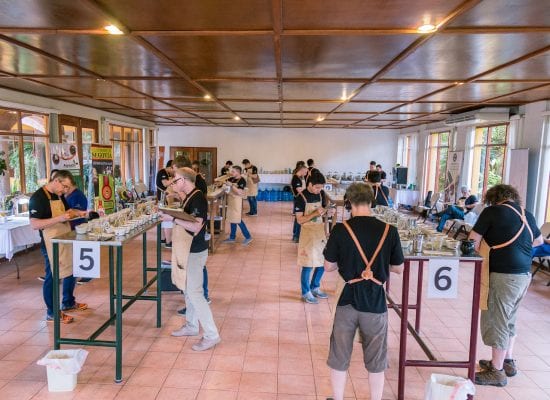
The top lot for COE Nicaragua was a natural-processed Red Pacamara variety from Luis Alberto Balladares Moncada’s farm, La Bendicion, in the Nueva Segovia region. Luis, whose coffee scored 91.8, remarked: “Competition in coffee stimulates quality and service.” Darrin Daniel, executive director of ACE, says it was interesting to see a natural-process win first place in Nicaragua. “Nicaragua has not been as prone to doing natural processing as other countries like El Salvador or Mexico, where there’s a little bit more of a history of it,” says Darrin. “And from an environmental standpoint, it’s good to see more countries embracing naturals since they use less water than other methods.”
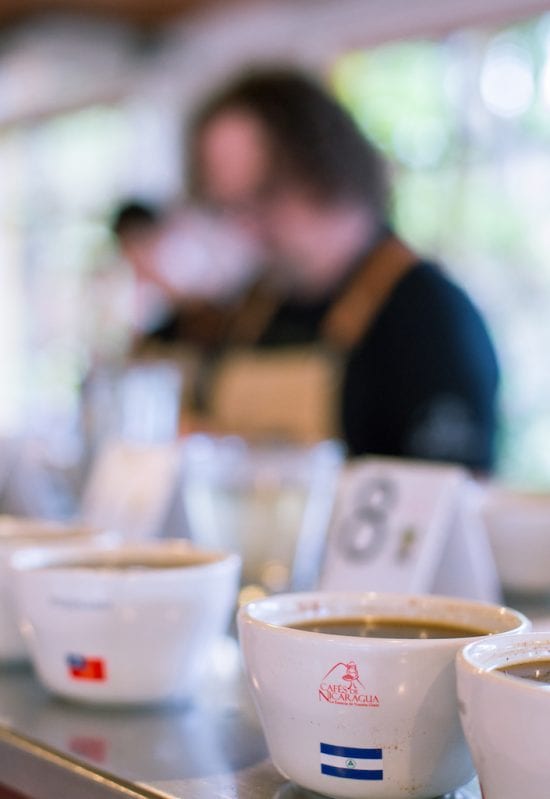
Darrin says another interesting takeaway from this year’s competition was an increase in entries from cooperatives, with 76 of the 214 competing coffees coming from co-ops—primarily Proodecoop, located in Nicaragua’s Estelí department. “We’ve been working very hard to get more inclusion from the cooperatives,” says Darrin. “In countries like Nicaragua, so much of the coffee production comes from cooperatives, so we want to get them involved to really see the full extent that’s available in quality.”
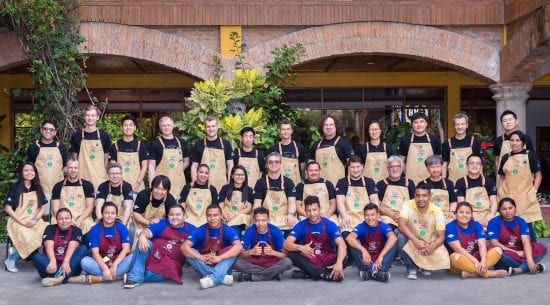
Another notable element of COE Nicaragua was the strong performance of F1 hybrid varieties, which represented four of the top 11 coffees in competition. F1 hybrids are varieties created through breeding programs to be high in quality and yield, and resistant to pests and diseases. With coffee farmers facing increasing challenges from climate change—and demand for coffee expected to significantly outpace supply in the near future—organizations like World Coffee Research (WCR) are working to promote their widespread adoption.
The second-place finisher was Gonzalo Adán Castillo Moreno, who scored a 90.4 with his honey-processed F1 hybrid variety Centroamericano. Centroamericano was created by a consortium including French research institute CIRAD, a regional network of national coffee institutes in Central America (PROMECAFE), and a coffee genebank in Costa Rica (CATIE).
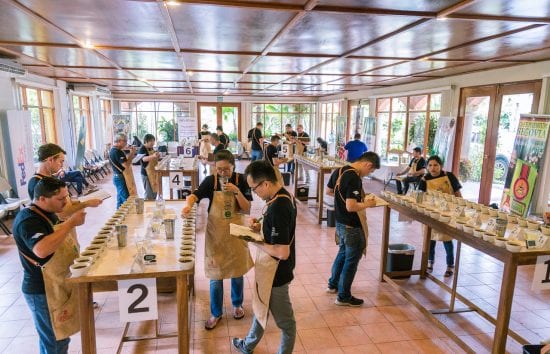
Tim Schilling, founder and CEO of WCR, says the organization is supporting the use of hybrids because they hold so much promise for the future of the industry—and their strong quality was evident in the COE results. “F1 hybrids are the most exciting development in coffee of the 21st century,” Tim says. “They are giving farmers what they need—higher yields, higher tolerance to diseases and pests, more resilience in the face of all sorts of stressors—and they are producing exceptional cup quality, as we can see from these results. That combination has never been possible before for coffee. It’s the reason we are working with countries around the world to produce more new F1 hybrids tailored for their local conditions. It’s not easy for a farmer to decide to try a new variety. It’s a lot of risk. These results give farmers the confidence to try something new.”
The COE Nicaragua jury featured coffee professionals from Russia, Bulgaria, Netherlands, Germany, the United States, Mexico, South Korea, and Japan. The online auction for COE Nicaragua will take place June 5. For more information, visit ACE’s website.
In other Cup of Excellence news, ACE also recently held its 2018 COE El Salvador competition. Six regions from the country submitted 194 samples, which were narrowed down to 40 samples, all of which passed the first phase of evaluation from the international jury (scoring 87+) and moved on to the next round. The top-scoring coffee was a 91.6 Gesha from Margarita Lucia Diaz De Lopez of Finca El Manzano (La Cumbre), marking the first time a Gesha placed first in the El Salvador COE. The online auction for COE El Salvador will take place May 29.

